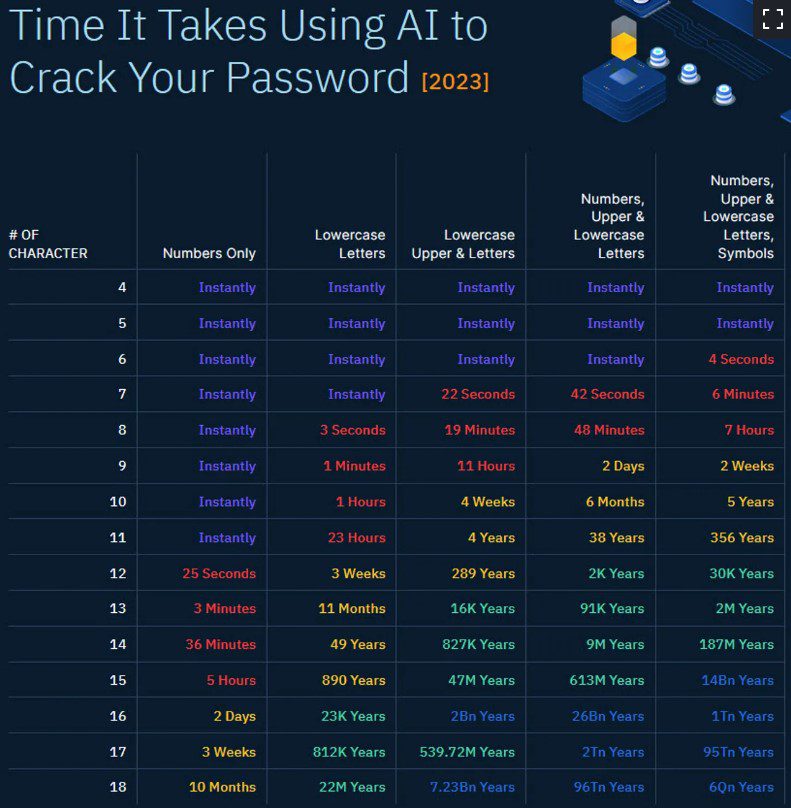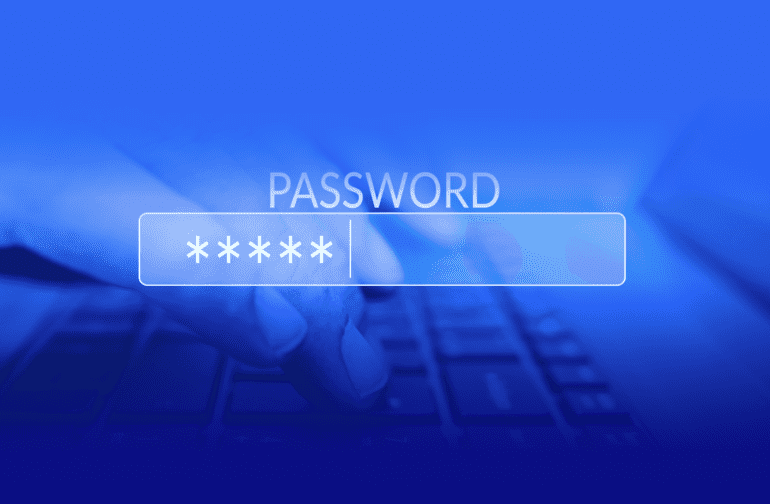TL;DR:
Protecting Passwords in the AI Era:
- AI-powered tools like PassGAN can crack over half of the common passwords in less than a minute.
- The length and complexity of passwords are key to their security.
- Passwords should be at least 15 characters long and mix uppercase and lowercase letters, numbers, and symbols.
- Regular password changes are important to protect passwords from abuse.
- Avoid repetition by not using the same password for multiple accounts.
- Utilize a password manager to manage unique passwords for all accounts.
Tips for Cybersecurity:
- Adopt strong password patterns.
- Change passwords regularly.
- Avoid password reuse.
- Use a password manager.
- Artificial intelligence can be both a threat and a tool in password security. By following the tips above, sensitive information can be protected.
Main AI News:
In today’s rapidly evolving digital landscape, protecting our passwords has never been more critical. A recent report from cybersecurity experts at Home Security Heroes highlights the threat posed by artificial intelligence to password security. The study, which analyzed 15.6 million common passwords, found that over half could be cracked in less than a minute with the help of AI-powered tools like PassGAN.
PassGAN, a combination of “password” and “GAN” (Generative Adversarial Network), is a powerful AI tool that can analyze real leaked passwords and learn from them to crack new passwords with greater efficiency. The study showed that 81% of common passwords could be cracked in less than a month, with 71% cracked in less than a day, 65% in under an hour, and a stunning 51% cracked in just a minute.
Password length and complexity play crucial roles in their susceptibility to AI attacks. PassGAN can effectively crack a seven-character password, consisting of upper and lowercase letters, numbers, and symbols, in as little as six minutes.
For optimal security, passwords must be both extensive and intricate. A nine-character password composed of various characters would take five years to crack, while an 18-character password consisting of solely numbers would take 10 months to break. An 18-character password that incorporates a mix of characters would take an incredible six quintillion years to be cracked.
The Art of Cybersecurity: Protecting Passwords in the AI Era
In today’s data-driven world, password security has become a critical concern. The rise of artificial intelligence has made it easier for hackers to crack passwords, but there are steps we can take to protect ourselves.
1. Adopt Strong Password Patterns: The length and complexity of passwords are key to their security. Aim for a minimum length of 15 characters, incorporating a mix of uppercase and lowercase letters, numbers, and symbols. Avoid obvious patterns, such as real words.
2. Regular Password Changes: To protect our passwords from abuse, it’s important to change them regularly. This is particularly crucial if we suspect unauthorized access to our accounts or if we’ve shared our password with the wrong person.
3. Avoid Password Reuse: Using the same password across multiple accounts is a significant security risk. If a hacker cracks one password, they can use it to compromise all of our other accounts.
4. Utilize a Password Manager: Keeping track of long and complex passwords for each of our accounts is almost impossible without help. Until passwordless options become more widespread, a password manager is the best solution to manage all of our unique passwords.

Home Security Heroes. Source: ZDNET
Conlcusion:
Artificial intelligence can be both a threat and a tool in the realm of password security. While PassGAN demonstrates the power of AI in cracking passwords, it also provides a way for us to verify the strength of our passwords. By adhering to the recommended guidelines, we can proactively safeguard our confidential information.

